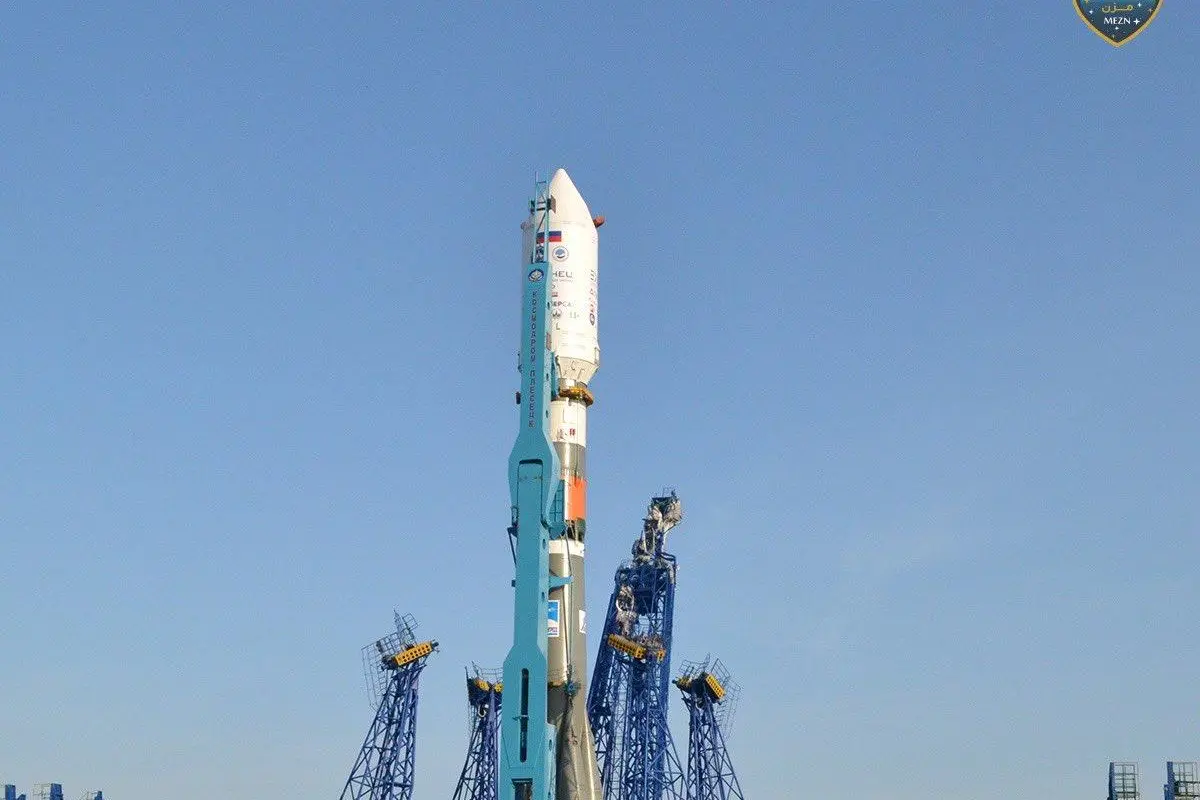PHOTO
ABU DHABI - The United Arab Emirates will launch today its first environmental nanosatellite which was developed by students of Khalifa University, KU, and the American University of Ras Al Khaima, AURAK.
As part of the UAE Space Agency’s efforts to drive experiential learning in universities, MeznSat will be carried to a low Earth orbit altitude of 575km from the Plesetsk Cosmodrome in Russia by a Soyuz-2 rocket at 13:20 CET, 15:20 UAE time. The students will oversee MeznSat’s control operations from the primary ground station at KU’s Yahsat Space Laboratory and from the secondary ground station in AURAK.
The students successfully completed several environmental tests two months prior to the launch that include the final fit checks, the thermal vacuum test, and the vibration test signalling the satellite’s readiness for launch. The satellite’s design and development involved 30 students across both universities and was completed over three years. Their role included the design, development, testing and verification of MeznSat.
In addition, they worked on preparing the satellite’s laboratory, developing the work plan and manufacturing key parts of the satellite such as the payload and the ground station.
The students also worked on the development of algorithms to process the retrieved scientific data. This programme demonstrated the ability to complete long-term projects within an educational setup that provided students with a unique opportunity to convert learned knowledge into practice.
The programme aimed to transfer knowledge from the space sector to the students and involved a team of experienced engineers from some of the leading programmes in the space sector.
The satellite will measure and detect the most prevalent greenhouse gases, carbon dioxide, CO2, and methane. The growing release of these gases into the atmosphere causes a rise in temperature on Earth.
The satellite has two payloads on board; a shortwave infrared spectrometer covering wavelengths ranging from 1,000-1,650 nanometres and an RBG digital camera that can take coloured images of Earth. A nanosatellite, MeznSat weighs around 2.7kg, and measures 10cm x 10cm x 30cm.
A team of KU postgraduate students and AURAK undergraduate students will monitor, process and analyse the data sent to the ground station at KU’s Yahsat laboratory and the supporting ground station at AURAK.
Dr Eng Mohammed Nasser Al Ahbabi, Director General of UAESA, stressed that MeznSat’s imminent take-off on schedule testified to the ability of UAE’s youth as well as the potential of students majoring in STEM subjects to translate the UAE’s space exploration ambitions into.
Dr Al Ahbabi added, "These projects seek to develop national capabilities and enhance scientific research in universities, bringing up a new generation of Emirati engineers ready to join in the space sector. This direction by UAESA aligns with the keen interest of the wise UAE leadership in engaging the youth in scientific projects and giving them the experience needed for the job market."
Dr. Arif Sultan Al Hammadi, Executive Vice-President, Khalifa University of Science and Technology, said, "We are delighted to see our students’ successful contribution to the new MeznSat nanosatellite, a collaboration with the UAE Space Agency. We plan to develop three more nanosatellites in the future. These achievements showcase Khalifa University's dedication to enhancing innovation in sectors that are strategic to the UAE. Our students have the opportunity to contribute to these projects during their studies. Their research innovations will have a great impact on the future of the UAE’s space sector. We look forward to witnessing similar achievements, as we provide our students with an opportunity to demonstrate their capabilities."
Professor Hassan AlAlkim, President of the American University at Ras Al Khaimah, said, "The launch of the MeznSat satellite on September 28, 2020 is a milestone for AURAK. It is the result of joint efforts between the American University of Ras Al Khaimah, Khalifa Universityand the UAE Space Agency, which supervised the project. This is a powerful example of how students could go beyond theoretical learning and prepare themselves for their future careers."
© Copyright Emirates News Agency (WAM) 2020.





















